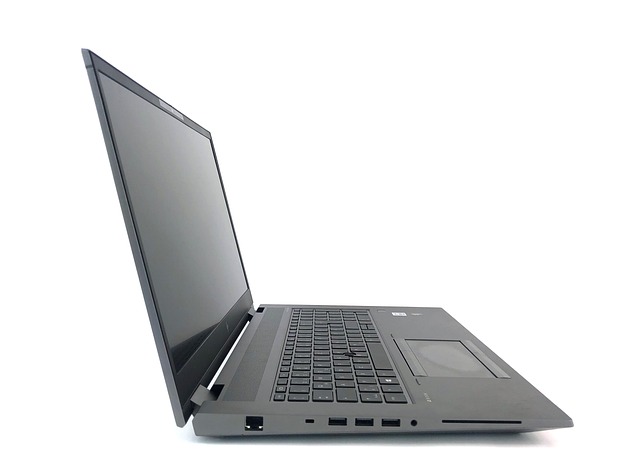The Essential Guide to Buying Used Laptops
Purchasing a used laptop can be an excellent way to access quality technology at a fraction of the original price. Whether you're a student on a budget, a professional seeking a backup device, or someone exploring computing options without breaking the bank, the used laptop market offers compelling opportunities. With proper knowledge and careful evaluation, you can find reliable machines that meet your needs while avoiding common pitfalls that plague uninformed buyers.

The Advantages of Buying Used Laptops
Buying used laptops presents numerous benefits beyond simple cost savings. The most obvious advantage is the significant price reduction, often ranging from 30% to 70% off the original retail price depending on age and condition. This affordability allows access to higher-end models that might otherwise be financially out of reach when purchased new.
Depreciation works in your favor when buying used. Laptops lose value rapidly in their first year, meaning you can acquire relatively recent models with modern features at substantially reduced prices. Additionally, many used laptops come from business environments where they received regular maintenance and careful handling, potentially offering better longevity than consumer-used devices.
Environmental consciousness also plays a role. Purchasing used electronics reduces electronic waste and extends the useful life of existing devices, contributing to more sustainable consumption patterns.
How to Assess the Quality of a Used Laptop
Evaluating a used laptop requires systematic inspection of both hardware and software components. Begin with the physical exterior, checking for cracks, dents, or excessive wear that might indicate poor treatment or potential internal damage. Pay particular attention to the screen for dead pixels, discoloration, or brightness issues.
Battery health represents a critical factor often overlooked by buyers. Request battery cycle count information and test actual battery life against manufacturer specifications. Most laptops show significant battery degradation after 500-1000 charge cycles, requiring eventual replacement.
Keyboard and trackpad functionality should be thoroughly tested. Sticky keys, non-responsive buttons, or erratic cursor movement can indicate liquid damage or excessive wear. Similarly, check all ports, including USB, HDMI, and charging connections, to ensure proper functionality.
Internal specifications deserve careful attention. Verify the processor, RAM, and storage capacity match the seller’s description. Run diagnostic software to check hard drive health and overall system performance. Look for signs of overheating, such as excessive fan noise or unusual heat generation during basic tasks.
Essential Considerations Before Purchase
Research the specific laptop model before making any commitment. Understanding the original specifications, common issues, and typical market prices helps inform your decision and negotiation strategy. Check manufacturer support status, including driver availability and warranty coverage for the specific model.
Verify the laptop’s history when possible. Business laptops often come with detailed service records, while personal devices may lack documentation. Ask about previous repairs, upgrades, or modifications that might affect performance or warranty status.
Consider the total cost of ownership beyond the initial purchase price. Factor in potential upgrades, such as additional RAM or SSD installation, along with any necessary software licenses or accessories like chargers or carrying cases.
| Laptop Category | Typical Price Range | Expected Lifespan | Key Considerations |
|---|---|---|---|
| Business Grade (1-2 years old) | $400-$800 | 4-6 years | Better build quality, professional support |
| Consumer Grade (1-2 years old) | $250-$600 | 3-5 years | Variable quality, limited business features |
| Gaming Laptops (2-3 years old) | $500-$1200 | 3-4 years | High performance, potential overheating issues |
| Ultrabooks (1-3 years old) | $350-$900 | 4-6 years | Excellent portability, limited upgrade options |
Prices, rates, or cost estimates mentioned in this article are based on the latest available information but may change over time. Independent research is advised before making financial decisions.
Where to Find Quality Used Laptops
Multiple channels exist for purchasing used laptops, each with distinct advantages and considerations. Corporate lease returns often provide excellent value, as these machines typically received professional maintenance and careful handling throughout their service life.
Online marketplaces offer extensive selection but require careful seller evaluation. Look for detailed descriptions, multiple photos, and responsive communication. Established sellers with positive feedback ratings generally provide more reliable transactions.
Local computer stores and refurbishers often provide warranties and technical support, adding value despite potentially higher prices. These businesses typically perform basic testing and cleaning before sale, reducing buyer risk.
Final Inspection and Purchase Tips
Before finalizing any purchase, insist on comprehensive testing time. Boot the laptop, check all functions, and run basic performance tests. If buying online, understand the return policy and seller guarantees.
Negotiation remains possible in most used laptop transactions. Research comparable listings and use any discovered issues as leverage for price reduction. Remember that minor cosmetic flaws often provide negotiating opportunities without affecting functionality.
Document the transaction with receipts and any seller-provided warranties or guarantees. Take photos of the laptop’s condition at purchase for future reference.
The used laptop market offers excellent opportunities for informed buyers willing to invest time in proper evaluation. With careful assessment and realistic expectations, you can acquire reliable computing power at attractive prices while avoiding the premium costs associated with new devices.




